Mental Media

What is the impact of social media on women's mental well-being ?
Social media has become an integral part of our daily lives, and it has both positive and negative impacts on women's mental well-being. In this article, we will discuss the various ways in which social media affects women's mental health. ### Negative Impacts: #### 1. **Comparison and Jealousy** One of the most significant negative impacts of social media on women's mental well-being is the constant comparison and jealousy that arises from seeing other people's highlight reels. Women often compare themselves to others on social media, leading to feelings of inadequacy and low self-esteem. This can result in anxiety, depression, and even eating disorders. #### 2. **Cyberbullying and Harassment** Social media platforms are also notorious for cyberbullying and harassment, particularly towards women. Online harassment can take many forms, including trolling, stalking, sexual harassment, and doxxing. These actions can have severe consequences on a woman's mental health, leading to trauma, anxiety, and depression. #### 3. **Addiction and Time Management** Social media addiction is another issue that affects women's mental well-being. Spending excessive time on social media can lead to procrastination, reduced productivity, and poor time management skills. This can cause stress, anxiety, and feelings of guilt, ultimately affecting a woman's overall mental health. #### 4. **Body Image Issues** Social media is flooded with images of perfect bodies and beauty standards, which can negatively impact a woman's body image. Constant exposure to these unrealistic beauty standards can lead to body dysmorphia, eating disorders, and low self-esteem. ### Positive Impacts: Despite the negative impacts, social media also has some positive effects on women's mental well-being. #### 1. **Support and Community** Social media provides a platform for women to connect with like-minded individuals and form supportive communities. These online communities can offer emotional support, advice, and encouragement, helping women cope with various issues they face in their personal and professional lives. #### 2. **Education and Awareness** Social media is an excellent source of information and education on various topics related to women's health, such as menstrual hygiene, reproductive rights, and breast cancer awareness. This increased awareness can empower women to make informed decisions about their health and well-being. #### 3. **Self-expression and Creativity** Social media platforms provide women with an opportunity to express themselves creatively through writing, photography, art, or other forms of content creation. This creative outlet can serve as a therapeutic tool for women to cope with stress, anxiety, or depression. #### 4. **Career Opportunities** Social media has opened up numerous career opportunities for women in fields such as digital marketing, content creation, and influencer marketing. These opportunities allow women to pursue their passions while maintaining flexible work schedules that accommodate their personal lives. In conclusion, social media has both positive and negative impacts on women's mental well-being. While it can lead to comparison, jealousy, cyberbullying, addiction, and body image issues, it also provides support, education, self-expression, and career opportunities. It is essential for women to be aware of these impacts and use social media mindfully to maintain their mental health and well-being.
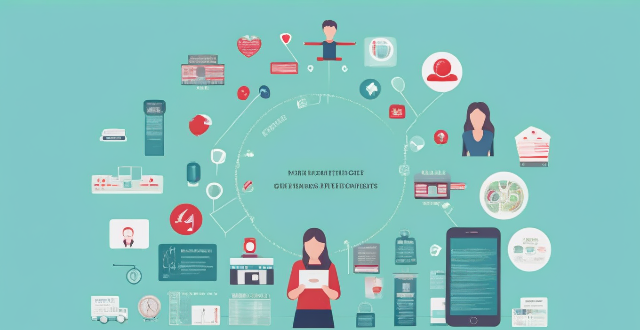
Is social media addiction a real problem, and how can it be addressed ?
Social media addiction is a growing problem with significant impacts on mental health, relationships, and productivity. Recognizing the signs of addiction, such as excessive use or neglecting important activities, is crucial for addressing the issue. The negative effects include mental health issues, relationship problems, and reduced productivity. To combat social media addiction, individuals can set limits on usage, find alternative activities, practice mindfulness, and seek professional help if needed.

In what ways can social media impact my personal image ?
Social media has become an integral part of our daily lives, and it can significantly impact our personal image. Here are some ways in which social media can affect how others perceive us: Positive Effects: - Building a Professional Brand: Social media provides networking opportunities and allows individuals to showcase their achievements and expertise. - Enhancing Personal Reputation: Individuals can project a positive image by sharing accomplishments, hobbies, and interests, and engage with followers to build a loyal community. Negative Effects: - Damaging Professional Reputation: Posting unprofessional content or oversharing personal information can harm one's professional image and lead to privacy breaches. - Harming Personal Reputation: Cyberbullying and sharing false information can damage mental health and make individuals appear unreliable or irresponsible. Managing Your Online Presence: - Best Practices for Maintaining a Positive Image: Monitor your content, use privacy settings, think before you post, and maintain consistency across platforms. - Handling Negative Situations: Address mistakes proactively and seek professional help if necessary. Overall, social media can be a powerful tool for enhancing or damaging one's personal image. By being mindful of what you share online and actively managing your digital footprint, you can use social media to your advantage while minimizing potential risks.
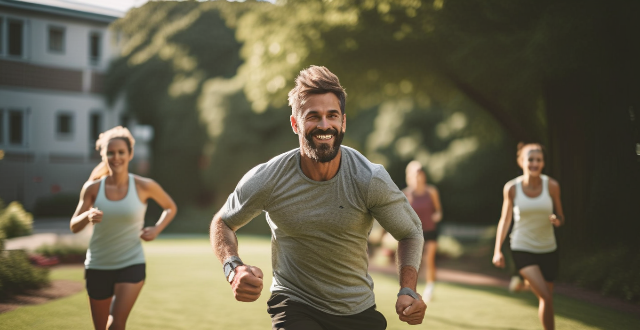
How do I manage my sports career effectively ?
Managing a sports career effectively involves physical training, mental preparation, strategic planning, lifestyle balance, health and wellness, networking and media relations, financial management, and continuous learning and self-improvement. Key elements include regular workouts, rest and recovery, nutrition, cross-training, visualization techniques, stress management, goal setting, mindfulness practices, long-term and short-term objectives, competition scheduling, sponsorship and partnerships, education and personal development, social life, hobbies and interests, regular check-ups, injury prevention, mental health support, building connections, media training, social media presence, budgeting, investments, tax planning, feedback, educational resources, and adaptability. By focusing on these areas, athletes can develop a comprehensive plan to manage their sports career effectively while maintaining a healthy and balanced lifestyle.

How can we address the stigma surrounding mental health in women ?
Summary: Addressing the stigma surrounding mental health in women requires a comprehensive approach involving education, awareness, and advocacy. Public education campaigns can help demystify mental health, while school programs can teach young girls that it's okay to seek help. Corporate training and media representation can also play a role in changing public perception. Support groups, mental health advocates, government policies, and employer policies can provide support and resources for women struggling with mental health issues. By working together, we can create a society where women feel comfortable discussing their mental health and seeking help without fear of judgment or discrimination.
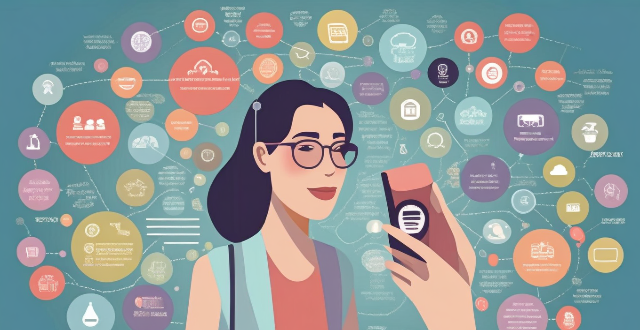
How does social media impact the development of teenagers ?
The article discusses the impact of social media on teenagers, highlighting both its positive and negative effects. The positive effects include connectivity, information and learning, and creativity and self-expression. However, the negative effects such as addiction, cyberbullying, and privacy risks are also significant concerns. The article emphasizes the need for responsible and safe use of social media by teenagers.

What are some examples of successful celebrity social media campaigns ?
Social media has become a powerful tool for celebrities to connect with their fans and promote their work. Successful celebrity social media campaigns include Beyoncé's Lemonade album release, Dwayne "The Rock" Johnson's Motivational Mondays, Ellen DeGeneres' Oscar selfie, and Lady Gaga's Born This Way Foundation. These campaigns have used exclusivity, visual content, personal touch, consistency, inspirational content, personal branding, timing, star power, humor, purposeful content, engaging fans, and alignment with personal values to achieve success.
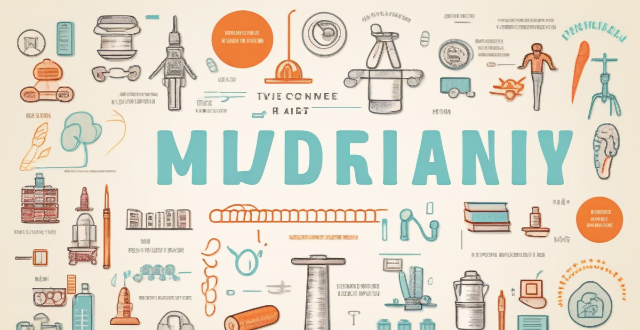
What role does the media play in promoting physical activity and healthy lifestyles ?
The media has a significant impact on promoting physical activity and healthy lifestyles by raising awareness, disseminating information, providing motivation and inspiration, increasing accessibility and convenience, and offering practical health tips. Through educational campaigns, success stories, fitness challenges, online workouts, and health tips, the media can encourage people to adopt healthier habits and increase their physical activity levels.

How can the media be used to increase participation in youth sports programs ?
The media can be used to increase participation in youth sports programs by creating awareness, generating interest, and providing information about opportunities available. Strategies include collaborating with local TV and radio stations for PSAs, utilizing social media platforms for short videos and infographics, live streaming sporting events, conducting interviews with coaches and athletes, creating online directories of sports programs, and hosting Q&A sessions and webinars. By leveraging the power of the media, we can inspire more young people to engage in sports and enjoy its numerous benefits.

How do sports competitions influence stress levels and mental readiness ?
Sports competitions can significantly impact stress levels and mental readiness. Performance pressure, fear of failure, winning obsession, and physical exertion can increase stress levels, while confidence building, goal achievement, camaraderie, and mindfulness practices can decrease them. Similarly, focus and concentration, resilience, mental toughness, and visualization techniques can improve mental readiness, while overthinking, perfectionism, lack of self-belief, and external factors can impair it. Overall, sports competitions provide opportunities for growth, learning, and personal development but also present challenges that require effective coping strategies to manage stress levels and maintain mental readiness.
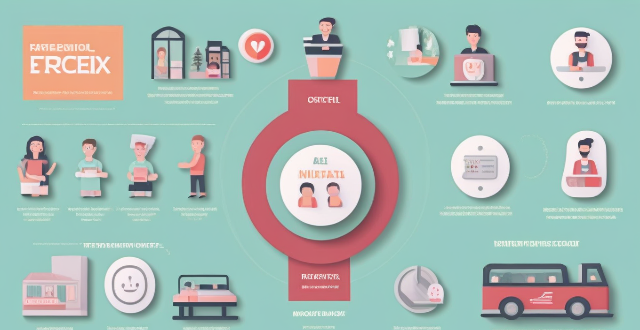
How do celebrities balance their personal and professional lives on social media ?
Balancing personal and professional lives on social media can be challenging for celebrities. Clear boundaries, separating personal and professional accounts, scheduling posts wisely, engaging with followers appropriately, and seeking professional help when needed are effective strategies for maintaining this balance. By following these strategies, celebrities can maintain a healthy balance between their personal and professional lives on social media while still connecting with their fans in meaningful ways.

What are the psychological effects of social media on teenagers ?
This article discusses the psychological effects of social media on teenagers, including increased anxiety and depression due to comparison with others' lives, fear of missing out (FOMO), cyberbullying, disrupted sleep patterns, decreased face-to-face interaction, body image issues, and cyberchondria. Parents and educators should monitor their children's social media usage and encourage healthy habits to help them navigate these challenges.

How can we promote self-care and self-love for women's mental health ?
Promoting self-care and self-love for women's mental health requires a comprehensive approach that includes creating awareness, providing resources, and establishing supportive environments. This involves understanding the importance of mental health, dispelling misconceptions, normalizing conversations, providing accessible information, offering therapeutic support, building community networks, implementing workplace initiatives, advocating for policies, encouraging mindfulness and meditation, promoting healthy lifestyle habits, and fostering self-reflection and growth. By adopting these strategies, we can empower women to take charge of their mental health and lead fulfilling lives.

How can sports clubs or teams provide a supportive community for mental health ?
The text discusses the importance of mental health in overall well-being and how sports clubs or teams can play a significant role in providing a supportive community for individuals dealing with mental health challenges. The author lists several ways in which sports clubs can create such an environment, including promoting open communication, creating a safe space, building a sense of belonging, offering opportunities for growth, encouraging physical activity, fostering resilience and coping skills, partnering with professionals, and educating on mental health awareness. The text emphasizes that sports clubs have a unique opportunity to provide a supportive community for mental health by taking these steps and contributing significantly to the overall well-being of their members.

How can educational psychology aid in addressing students' mental health issues ?
Educational psychology can aid in addressing students' mental health issues by understanding the role of emotional intelligence, promoting a positive school climate, providing early intervention and support services, encouraging self-care and resilience, and facilitating collaboration between educators and mental health professionals.
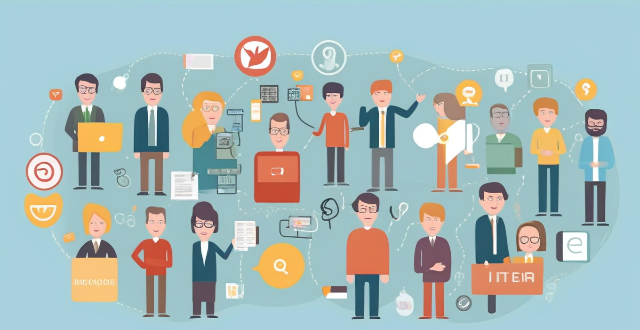
How do celebrities use social media to engage with their fans ?
Celebrities use social media to engage with fans through personal updates, interactive posts, live streaming, collaborations, promotional campaigns, and direct messaging.

How does the pressure of expectations from fans, media, and sponsors influence an athlete's performance at a competitive level ?
The text discusses the influence of expectations from fans, media, and sponsors on athlete performance. It outlines both positive and negative impacts of these expectations. Fan expectations can motivate athletes and boost their confidence but can also cause anxiety and distractions. Media expectations increase publicity and accountability but may lead to overwhelming pressure and misrepresentation. Sponsor expectations provide financial support and brand alignment opportunities but can result in contractual pressures and distractions. Overall, managing these external pressures effectively is crucial for athletes to maintain optimal performance levels.

What is the importance of mental health in overall personal well-being ?
The text discusses the importance of mental health in overall personal well-being. It explains how good mental health can lead to better physical health, emotional stability, healthy social relationships, workplace productivity, and an improved quality of life. The article emphasizes the need for prioritizing mental health by seeking professional help when needed, practicing self-care, and engaging in activities that promote good mental health.
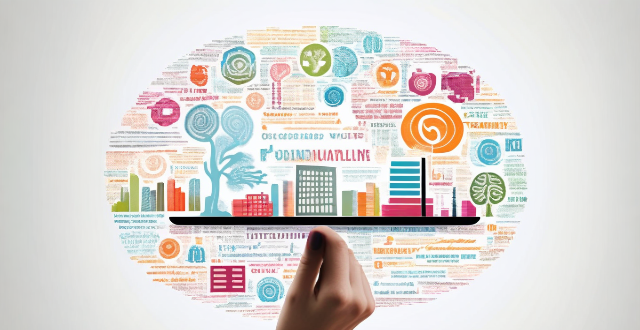
How has social media impacted public climate awareness ?
In this topic summary, we examine the multifaceted impact of social media on public climate awareness. We explore how social media amplifies climate conversations, facilitates education and awareness campaigns, spreads misinformation and echo chambers, and fosters community building and collaboration. While social media has increased visibility and accessibility of climate-related content, it also presents challenges such as misinformation and polarized discourse. To harness its full potential, promoting accurate information and constructive dialogue is crucial for driving action towards a more sustainable future.
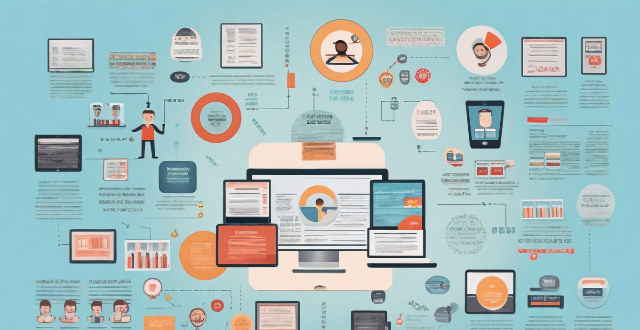
How does social media influence consumer behavior ?
Social media has transformed consumer behavior by increasing brand awareness, influencing purchasing habits, and changing perceptions of brands. It enables consumers to compare products, share feedback, and engage with companies directly. Social media also plays a crucial role in product development by providing insights into consumer needs and preferences. Companies can foster customer loyalty through engagement and exclusive deals on these platforms. The rise of social commerce allows for direct purchases within apps and live streaming sales events. Personalization and targeted marketing, including influencer collaborations, further impact consumer choices. Overall, social media's influence on consumer behavior is significant and continues to evolve with technological advancements.

Are there specific exercises that help improve mental health ?
Exercises like yoga, meditation, aerobic exercise, resistance training, MBSR, and Tai Chi can help improve mental health by reducing stress, anxiety, and depression symptoms while promoting relaxation, self-awareness, and social interaction.

What role does media play in shaping our perception of cultural diversity ?
This article explores the significant role of media in shaping our perception of cultural diversity. It highlights how media exposure to different cultures, representation of cultural diversity, and influence on attitudes and beliefs contribute to understanding and appreciation of cultural diversity. The article encourages critical thinking and active seeking out of diverse perspectives to promote a more inclusive society.

In what ways does poor personal hygiene impact mental health ?
Poor personal hygiene can negatively affect mental health by causing decreased self-esteem, social isolation, and exacerbating symptoms of mental health disorders. It is important to maintain good hygiene habits for overall well-being.
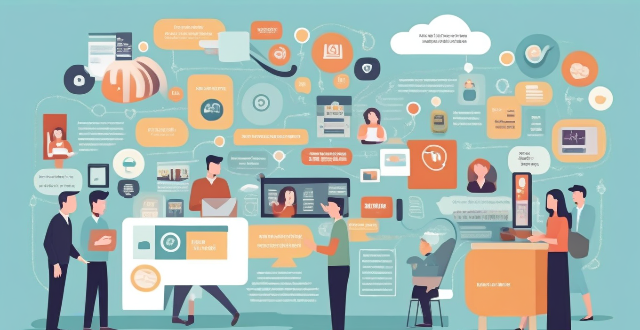
How do celebrities use social media to promote their personal brand ?
Celebrities use social media to promote their personal brand by being authentic, engaging with fans, collaborating with others, maintaining consistent brand messaging, and promoting their own projects.
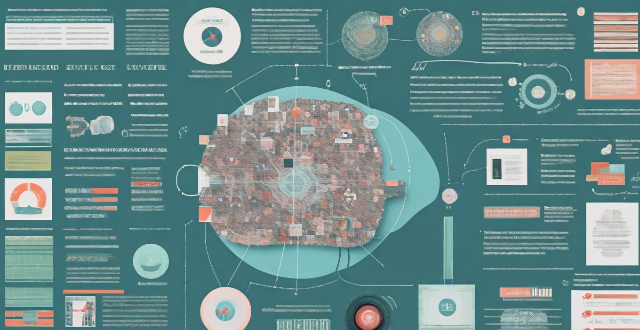
How does sports culture shape the media industry ?
Sports culture significantly impacts the media industry by influencing content, formats, and business models. This influence is evident across various media platforms, including news coverage, advertising strategies, social media engagement, and more. The prioritization of sports news, specialized reporting, live broadcasting, brand integration, athlete endorsements, and fan interaction are just some examples of how sports culture shapes the media landscape. Additionally, the growth of fantasy sports and gamification further integrates sports into media consumption. As both industries continue to evolve, their relationship is expected to grow stronger, with sports culture remaining a central force in shaping the media industry.

How does climate change affect children's mental wellbeing ?
Climate change has a significant impact on children's mental wellbeing, leading to anxiety, fear, emotional distress, grief, and loss. However, by educating children about the issue, providing access to mental health services, and building strong communities, we can help mitigate these effects and support children's overall wellbeing.

How has social media impacted the entertainment industry ?
The text discusses the impact of social media on the entertainment industry. It mentions that social media has increased accessibility to content, changed content creation, made it possible for audiences to interact with creators, become a crucial tool for marketing and promotion, and created new revenue streams. The text concludes that social media has had a profound impact on the industry and will continue to shape its future.

What impact has the pandemic had on mental health and well-being ?
The COVID-19 pandemic has significantly impacted mental health and well-being, leading to increased stress, anxiety, depression, insomnia, and substance misuse. Factors such as fear of infection, financial instability, social isolation, grief, and disruption of daily routines contribute to these issues. The situation emphasizes the need for accessible mental health services and support systems to address psychological needs during this challenging period.
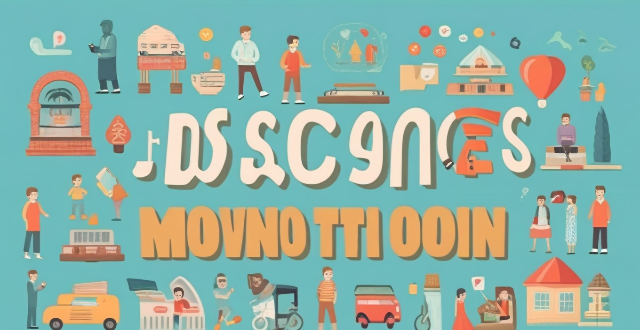
How has social media influenced environmental awareness campaigns ?
The text discusses how social media has revolutionized communication and information sharing, particularly in the context of environmental awareness campaigns. It outlines various ways in which social media has impacted these campaigns, including increased visibility, interactivity, accessibility, influence of celebrities and influencers, real-time updates, and crowdsourcing and fundraising opportunities. The text concludes that social media is an essential tool for promoting environmental causes and will likely continue to play a significant role in shaping our understanding of the environment and inspiring action.